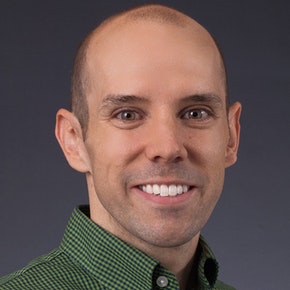
The Many Sides of Masculinity

The search for a more inclusive definition of masculinity is not new: Robert Bly attempted to redefine the term in his 1990 best-seller “Iron John.” But given the recent revelations of predatory behavior among entitled men — think Jeffrey Epstein, Harvey Weinstein and Charlie Rose — the issue feels particularly urgent today.
Exploring and challenging our often-destructive notions of what it means to be a man is the focus of “Masculinity in America,” UC Santa Barbara’s 2019 Critical Issues in America series. Kicking off Oct. 7, it will continue through the spring with a mix of lectures and performances. Unless otherwise noted, events are free and open to the public.
“Everything feels connected with masculinity right now, from mass shootings to the #metoo movement to the resurgence of a white supremacist movement in the U.S.,” said Tristan Bridges, an assistant professor of sociology and organizer of the series. “So it’s an important moment to have conversations about this. Some of them are going to be uncomfortable. But these moments are productive.”
Bridges, whose research focuses on masculinity and gender, as well as sexual identity and inequality, noted that for all the discussion provoked by America’s recent spate of gun violence, one of the most obvious common denominators of the perpetrators goes largely unmentioned.
“Virtually all mass shootings are committed by men,” he said. “Other societies have high rates of gun ownership, but do not have mass shootings the way we do in the United States.
“So there are two questions: Why is it that men commit these crimes in disproportionate numbers compared to women, and why is this particularly true of American men? In part, it’s about gun culture — what guns mean in the U.S., and how those meanings are tied to masculinity.”
The connection between masculinity and violence is the subject of the series’ first event: A talk by journalist and author Thomas Page McBee entitled “Am I a Real Man?” The first transgender man to box in Madison Square Garden, McBee will provide a unique perspective on gender stereotypes, testosterone and physical aggression.
“Dominance-based, ‘typical’ masculine behaviors are generally seen by experts I’ve spoken to as (a) encouraged and controlled for via our cultural socialization of boys ... and (b) damaging to all involved including men themselves,” said McBee, who will speak at 1:30 p.m. Oct. 7 in the campus’s MultiCultural Center Theatre.
“We have educated children into a gender fundamentalism that’s primary purpose is to uphold a political system where not just men, but a certain kind of masculinity, reigns supreme, as that is how our entire culture is organized. In fact, embedded in how we all learn masculinity is the notion that questioning it somehow makes one a ‘failure’ or “not a ‘real’ man.’”
Determined to make the series “ferociously interdisciplinary,” Bridges is following up that talk with two performances pieces. At 1 p.m. Oct. 14 in the MultiCultural Center Theatre, performance artist Alex Luu will present his “Three Lives,” an autobiographical one-man show about three generations of Vietnamese men and their experiences immigrating to the U.S.
That event, which was organized by Kip Fulbeck of the College of Creative studies, deals with family violence and trauma, according to Bridges. “Afterward the audience will be invited to stay for a workshop led by Luu, in which they will be invited to access some of their own emotions surrounding these issues,” he said.
Then, at 8 p.m. Oct. 24, 25 and 26, the Department of Theatre and Dance will present “Boys Like Us,” a work by UC Santa Barbara professor of dance Brandon Whited. “It’s a coming of age story of a young gay boy, and how his relationships with himself and other people are changed in the course of this process,” Bridges said.
“I’m excited by the idea of putting people into the audience of a dance performance who don’t traditionally come to dance performances,” he added. “I think these kinds of inter-campus conversations are really vital. One of the things I want to use the series for is to make new connections between groups interested in similar issues and ideas, but who are less often in conversation because of disciplinary boundaries. Many of us are doing similar work along similar ideas.”
Tickets for “Boys Like Us” are $17 to $19 general admission, and $13 to $15 for UC Santa Barbara faculty, staff and students.
The fall segment of the series concludes with two lectures. At 1 p.m. Nov. 4 in the McCune Conference Room, Michela Musto, a postdoctoral fellow at Stanford University, will discuss her research into white male entitlement among middle school students. In a three-year study, she explored how teachers and students come to identify certain students as exceptionally gifted, and found that label gradually got attached to “a small collection of white boys.”
Finally, at 1 p.m. Nov. 18 in the McCune Conference Room, Washington University sociologist Adia Harvey Wingfield will talk about her research into the ways men tend to rise to the top of female-dominated professions such as health care, and how black men’s experiences generally do not follow that pattern.
Bridges is well aware that many men are reluctant to question a system that gives them some clear advantages (along with burdensome expectations). But he is optimistic that this series may open some minds. “Sometimes I think men just need permission to have these kinds of conversations,” he said. “Hopefully, with this series, we provide permission in a variety of different forms.”
The annual Critical Issues in America series is sponsored by the College of Letters and Science. It is co-sponsored by the Office of the Executive Vice Chancellor, the Office of the Associate Vice Chancellor for Diversity and Equity, and the Academic Senate.
More information about this year’s series, including a more detailed calendar of events can be found at https://www.criticalissues.ucsb.edu/current.



